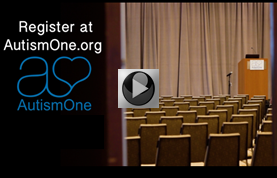Making Sense about Reported Brain Abnormalities in Autism
A review of the brain literature in autism suggests that brain abnormalities of germinal/stem proliferation cells acts as a loci minoris resistentia to different disease processes. In effect, secondary autism caused by tuberous sclerosis, rubella, cytomegalovirus, or associated with premature delivery provide for germinal cell alterations. A better understanding of this underlying process is the first step towards identifying putative risk factors and possibly averting this condition.
Manuel F. Casanova, MD, MD
Dr. Manuel Casanova was a founding member of the National Alliance for Autism Research. He chaired the Developmental Brain Disorders Study Section of the NIH and serves as an editor for eleven different journals. He has edited 3 books, written over 200 scientific articles and provided for over 300 congress presentations. Dr. Casanova is the recipient of a EUREKA award from the NIMH and in 2010 he was a plenary speaker at the World Organization of Autism Congress in Monterrey, Mexico.





